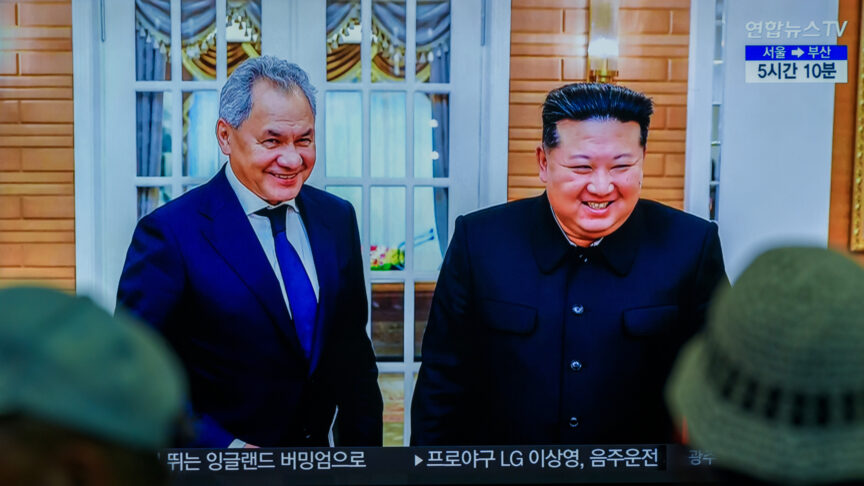The end of Germany’s China illusion
The German government has shed most of its illusions about the future political and economic relationship with China. How it navigates the implementation of its new approach will have significant implications for the EU and other member states
Germany’s stance on China matters. Not only because Germany is the world’s fourth largest economy and has been a beacon of stability and an engine of growth for Europe, but also because Germany matters to China. The Chinese government has consistently emphasised its respect for German industry, lauded Germany’s willingness to invest in China, and praised German openness to business and political prudence when dealing with the Chinese leadership. At the same time, Germany is unique among EU member states in the depth of its economic ties with China and the intertwined nature of its leading industries with the Chinese market.
This exceptional role has made Germany a massive beneficiary of China’s economic development. But it has also made it more vulnerable to the new global economic reality – in which geopolitics is back with a vengeance, and business is no longer just business but fraught with political tensions. How leaders in Berlin navigate this new environment will not only define the future of German prosperity, but also shape the European Union’s ability to maintain its position as global economic powerhouse and regulatory superpower.
Germany’s China strategy
In mid-July, Chancellor Olaf Scholz and his coalition government published Germany’s first ever comprehensive China strategy, an all of government position paper on the state of the German relationship with its largest trading partner. The document is a foundation that will guide policymaking in Berlin in the months to come, from enhancing cyber security and protecting critical infrastructure, to industrial policy and building new global partnerships. It could eventually result in one of the most fundamental changes in Germany’s foreign and economic policy of the last few decades: a final farewell to “Wandel durch Handel” (“change through trade”).
In fact, the document itself is already a first indicator of this shift. Unlike other publications of this nature, the strategy tests the limits of diplomatic prose by making a surprisingly clear argument about what kind of China Germany is facing: one that fundamentally challenges German interests, and one with which it has become much harder to find common ground: “China has changed, and therefore we must change our approach,” it says.
The Chinese leadership has been pushing for greater control of the market for years. This contributed greatly to the shedding of German illusions about how great of a business opportunity the Chinese market really is. It is becoming increasingly evident that the projected market expectations of continued high growth while maintaining large market shares that drove much of the German China enthusiasm will no longer progress in their previously linear direction. The Chinese pie will not only grow at a much slower pace, but European companies will capture a disproportionately smaller slice of it. Even in sectors that represent the greatest German pride, such as the automobile industry, Chinese electric vehicles are now aggressively challenging Teutonic dominance.
The Chinese pie will not only grow at a much slower pace, but European companies will capture a disproportionately smaller slice of it.
Germany is also a test case. Leaders in Berlin aim to significantly reduce Germany’s dependencies, maintain its industrial competitiveness, achieve carbon neutrality, improve digitalisation, and take a clearer stance on Chinese assertive actions at home and abroad. And they aim to do so while keeping political conditions stable, and maintaining what they tout as a “constructive relationship” with Beijing that allows for most uncontroversial, low-tech trade and people-to-people interaction to continue unimpeded. If Germany can de-risk in this way, chances are that all of Europe can. But, if Germany becomes subject to Chinese retaliation, others in Europe and beyond will take note.
The changes in the current German rhetoric and policy are not motivated by eager revolutionaries who want to re-jig the country’s industrial model and infuse trading relationships with higher moral standards; nor are they driven by convinced protectionists, subsidy-lovers, re-shorers, and decouplers. The Scholz government had already outlined its motivations very clearly in its coalition treaty – the China strategy is a logical continuity. It is the defensive agenda of a status-quo oriented European middle power that is grappling with a changing world around it, reluctantly trying to adapt its approach to safeguard its interests, as well as what is left of its world-leading innovative edge.
De-risk not decouple
The debate on the risks and benefits of de-risking in Europe could suggest that mere tweaks to the existing system are necessary. But the challenges ahead are far greater. Berlin wants to limit its asymmetric strategic dependencies; the Chinese government has declared it one of its own strategic priorities to enhance asymmetric dependencies on the Chinese market and on Chinese products. The German approach to de-risking is thus in conflict with that of China.
De-risking was supposed to ease minds; it was supposed to serve as the less sinister sounding little brother of the decoupling monster that has spooked German businesses since US voices inserted it into the global China conversation. But if Germany – and the EU and other member states – take de-risking seriously, the process will have far-reaching consequences. It will not only require much greater transparency across the business sector (which is far from keen on exposing its vulnerabilities), but also necessitate a broad societal conversation about political priorities and desirable futures.
It will be a struggle for the German government to strike the right balance between the very different sets of risks that China is directly or indirectly posing. And, by reducing one set of risks and dependencies, others will likely rise. The government will, for example, need to weigh up whether Chinese electric vehicles should be regarded as a threat to German competitiveness and deploy anti-subsidy measures, as suggested by European Commission president Ursula von der Leyen, even if that leads Beijing to retaliate against German producers in China. And this does not even include the question of whether Chinese electric vehicles constitute a massive cyber-security and surveillance risk.
Moreover, German decision-makers will have to consider whether they should reduce their dependence on Chinese green technology products because that enhances autonomy, is good for German industry, and prevents complicity in human rights violations – even if that comes at the cost of temporarily slowing down the green transition. They will also require a decent narrative to justify ripping out freshly installed Chinese telecommunications kit from 5G networks to enhance the security of critical infrastructure, while Germany still suffers across the board from problems in high-speed connectivity. The list could go on.
None of these questions is trivial nor necessarily Germany specific – across Europe, governments are dealing with similar challenges and providing their own answers. Some of these are far more radical than Germany’s, others far less so. In this sense, the German China strategy is right in emphasising resilience and strength at home: only if Berlin succeeds internally on getting the green transition right, moving digitalisation forward, and providing attractive conditions for innovation and industry can it hold course as Europe’s engine of growth and provider of stability.
But, at the same time, Germany will only find serious support for its rules-based preferences if it takes the interests of other EU member states into account and builds a more proactive agenda. So far, the European impulse of Germany’s China policy remains underdeveloped. Precisely because Germany has much more to lose than many, decision-makers across the EU are waiting for Berlin to position itself at the vanguard of a truly European answer.
For more on Germany’s disillusionment (or the lack thereof) when it comes to China see Janka Oertel’s new book (in German) “Das Ende der China-Illusion. Wie wir mit Pekings Machtanspruch umgehen müssen”.
The European Council on Foreign Relations does not take collective positions. ECFR publications only represent the views of their individual authors.



